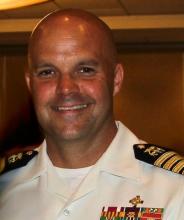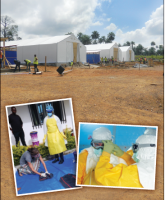The outbreak of Ebola in West Africa in 2014 provided a wake-up call for global health care experts. Responding to the next global health care crisis will require a more coherent and strategic response, and U.S. leadership, to protect both U.S. and global health security. The Ebola crisis “raised consciousness generally that health and security have become more directly linked,” said CAPT Paul Reed, MD, USPHS, interim director of the Center for Global Health Engagement (CGHE) at the Uniformed Services University.
According to CAPT Reed, global health engagement is an essential part of force preparedness and a key part of U.S. dialogue with global partners. The CGHE will host a series of sessions at the upcoming AMSUS meeting on November 28, outside Washington, DC, that will focus on global health strategies, the importance of global health engagement to combat commands, and projects underway to expand global health engagement.
The CGHE mission is to lead, integrate, and bring together thought leadership, research, and advocacy from public health experts, Uniformed Services University faculty, combatant commands, and the Military Health System to national security objectives. The CGHE is focused on developing partnerships to build global capacity and increase resiliency for disaster preparation. In addition, the center is engaged in research studies, including the Measures Of Effectiveness in Defense Engagement and Learning (MODEL) and the Improving Processes and Coordination in Theater (IMPACT) studies.
As the Ebola outbreak made clear, global health threats can impact both military and domestic operations. “There is not distinction between global and domestic health issues,” Dr. Reed told Federal Practitioner. “Global health engagement is a unique aspects of public health. We need to develop a new doctrine. We have to do it collectively and we can't do that in silos. We can't even do it within a federal government silo.”


